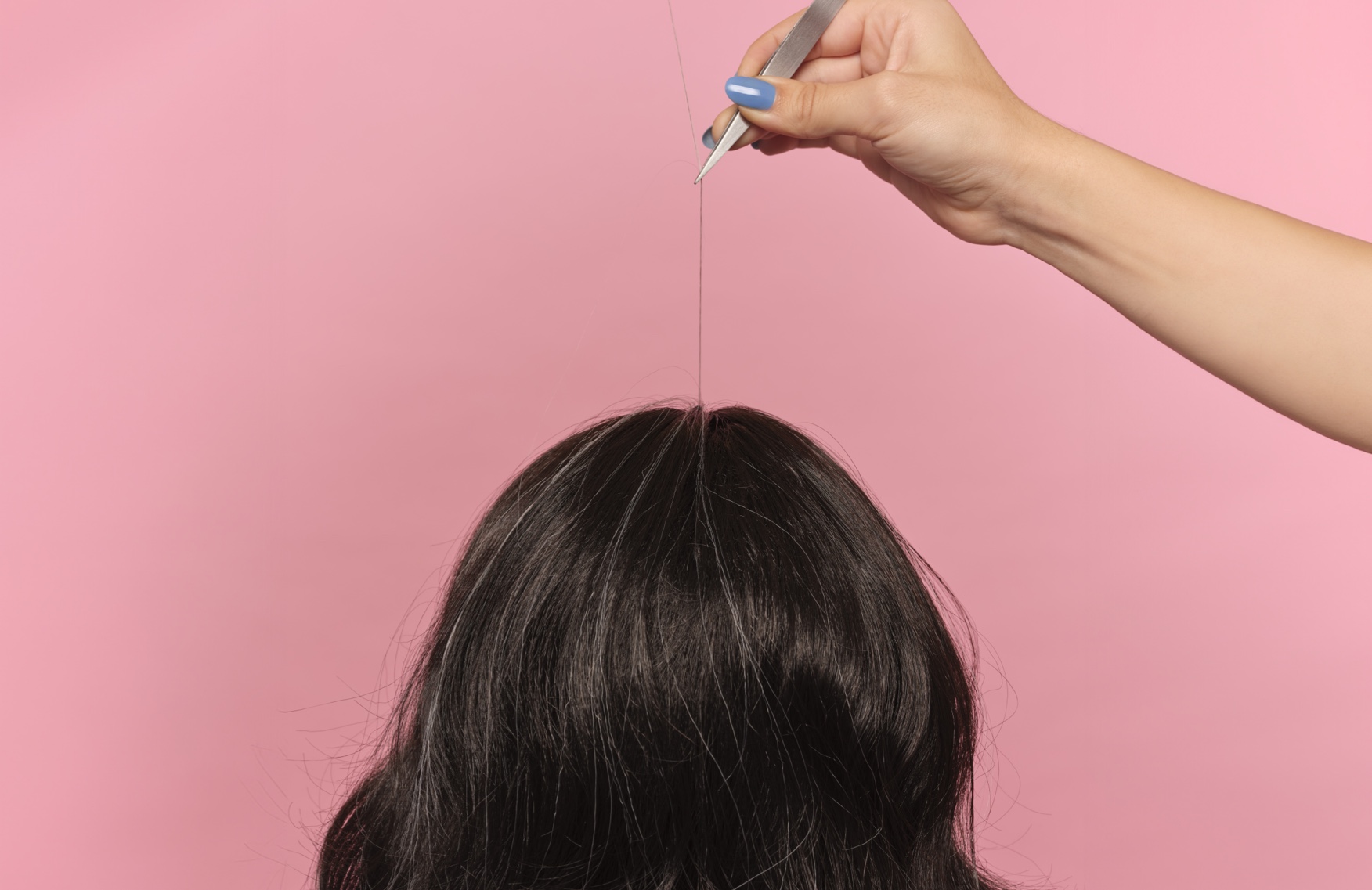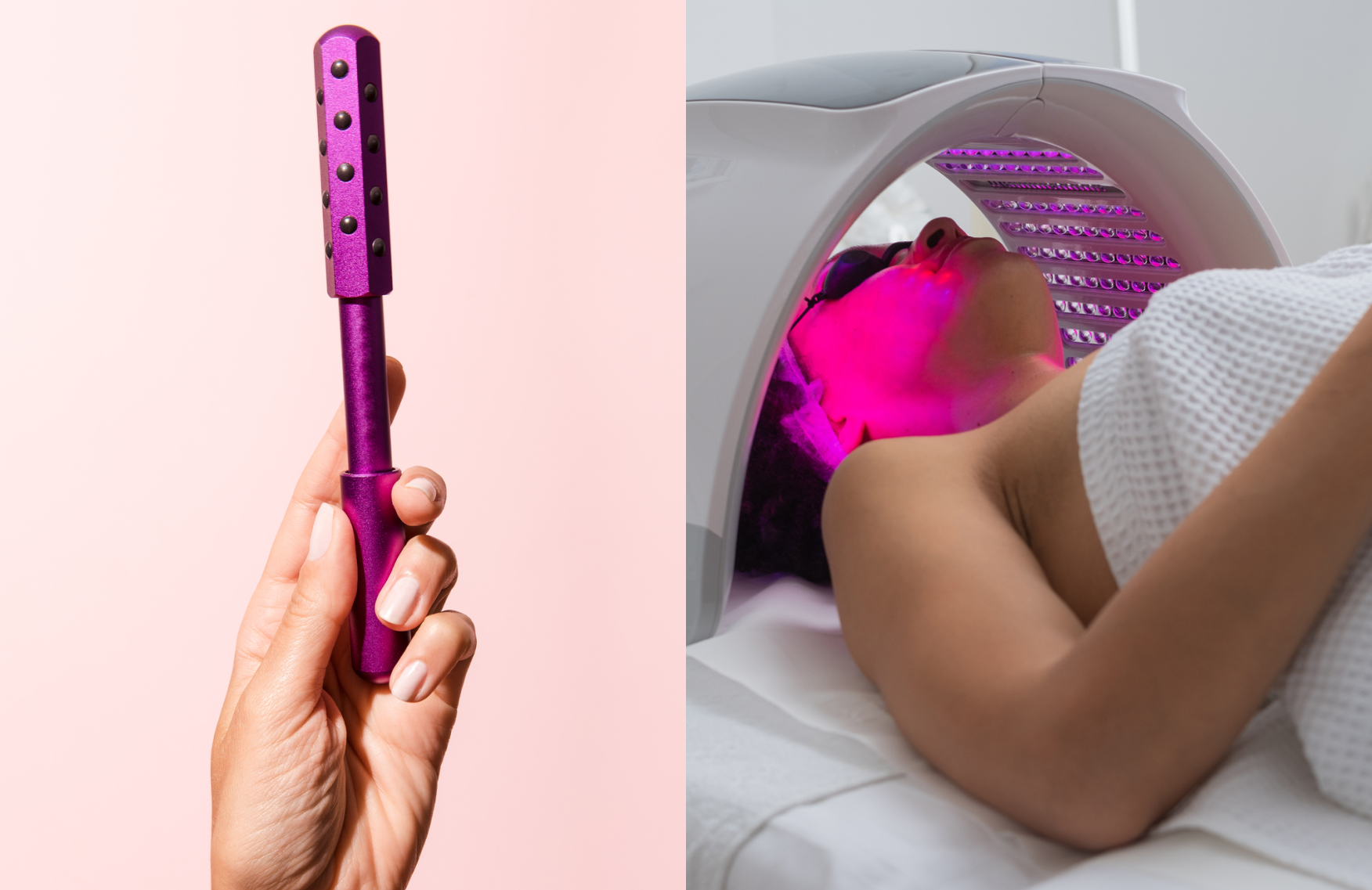Stressed? Anxious? Here’s how it’s affecting your hair

Are you so stressed that sometimes you feel like pulling your hair out? Of course, that’s not the best way to deal, especially since stress can already be responsible for significant hair and scalp changes. “It’s very common for people to say they’re not feeling stressed, yet there’s implications of the stress [in their hair],” says trichologist and hair stylist Dr. Kari Williams. “It’s not registering psychologically but physiologically, the body is responding.” Here are three ways stress may affect your hair health.
Hair loss or thinning
Hair grows in four stages: the growing Anagen phase, the transition Catagen phase, the resting Telogen phase and the shedding Exogen phase. One of the most common stress-related hair conditions is Telogen Effluvium, in which stress hormones (aka cortisol) push the hair follicles prematurely to the resting phase causing excessive shedding. Some studies have also found that elevated cortisol levels can even prevent hair follicle stem cells from regenerating and re-entering the growth phase.
When it comes to treating hair thinning or shedding, first assess lifestyle interruptions caused by stress, such as changes in nutrition and sleep schedule, as well as address stress management. “Identify where those imbalances are happening. Simply getting back on that routine can significantly impact hair growth,” says Dr. Williams. “The next thing I recommend is checking if you need support managing the psychological stress, whether it’s talking to a counselor or therapist. That’s going to be really important.”
Also, keep your hair care routine simple while you combat the hair shedding—avoid chemical applications and overloading the hair and scalp with too many products at one time
Gray hair
The anecdotal connection between stress and gray hair is a tale as old as time, but there is actual science that can correlate stress with premature grays. One 2020 Harvard study linked chemicals released in our sympathetic nerve system—which is responsible for the body’s fight-or-flight response during stress—to pigment-producing cells that affect hair color. A recent Columbia University study also suggests that premature graying can potentially be reversible if stress is reduced. While age and genetics are primary influences for when and how thoroughly your hair turns gray, addressing stressors can certainly be a factor in slowing the process.
Changes in scalp
We see how stress can lead to breakouts, so consider the number it can do to your scalp. “One of the most common scalp conditions we see is seborrheic dermatitis, which is when the sebaceous gland overproduces sebum and creates flaking in the scalp. These are autoimmune responses, and with stress, we really see the impact on the immune system,” explains Dr. Williams. “I’ve seen clients who’ve never had issues with their scalp experience this during stressful times.” She also cites that anxiety and stress can also precipitate skin conditions such as neurodermatitis, which is characterized by intense itching and scratching that can damage the scalp.
To treat symptoms of seborrheic dermatitis or neurodermatitis, Dr. Williams recommends products that gently exfoliate the scalp as well medicated shampoos that contain active ingredients such as salicylic acid or ketoconazole. And resist the urge to pick your scalp. “It’s important that you don’t scratch these flakes. We want to be mindful of not creating abrasions in the scalp where bacteria can enter into the bloodstream then lead to an actual scalp infection,” says Dr. Williams.
The views expressed in this article do not necessarily represent the views of Murad, and are for informational purposes only, even if the advice of physicians and medical practitioners are included. This article is not a substitute for professional medical advice, diagnosis or treatment, and should not be considered specific medical advice.
References for this information:
Healthline, September 2020
Journal of Medical Science, May 2020
The Harvard Gazette, March 2021
Columbia University Irving Medical Center, June 2021


